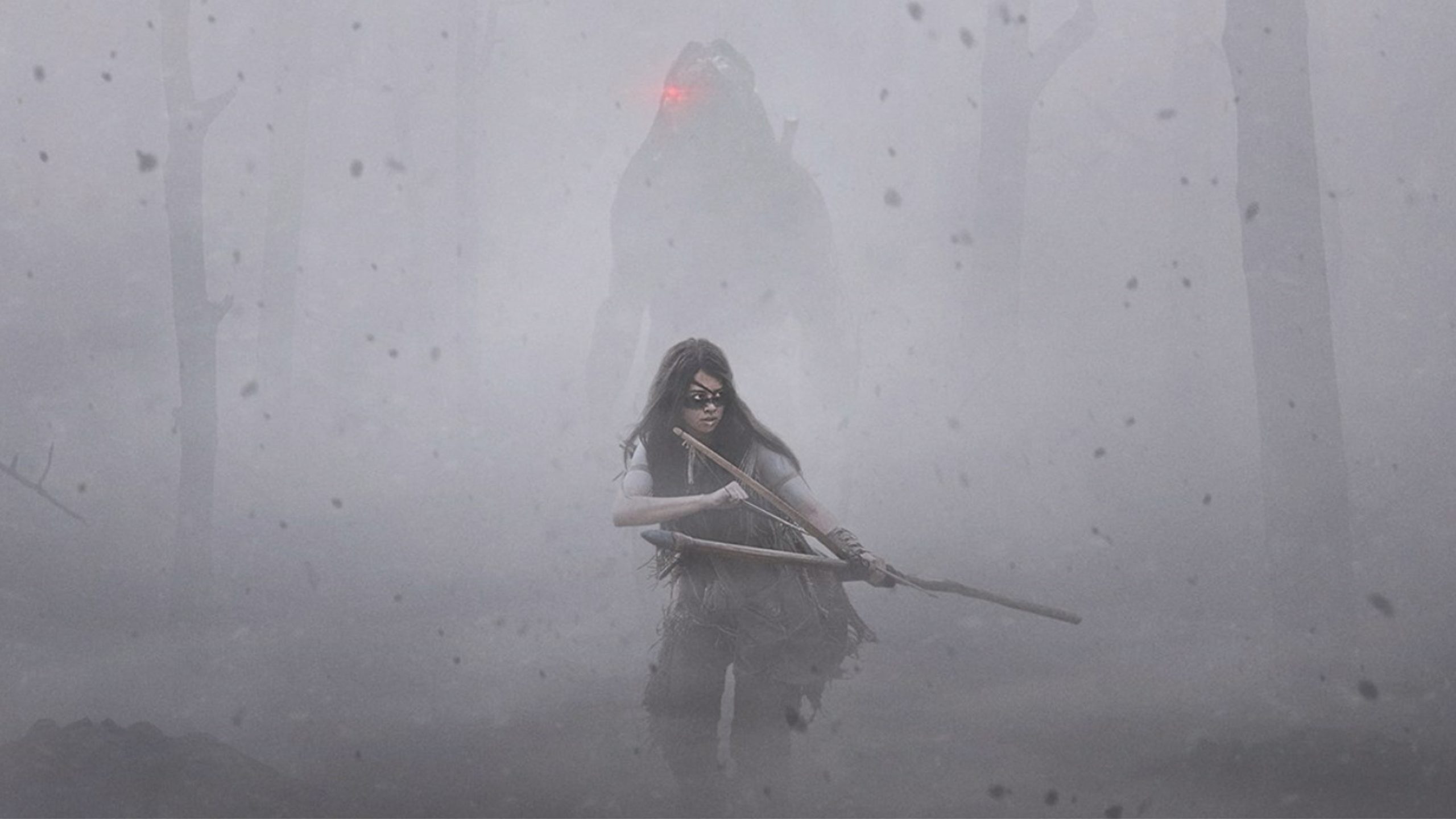 Another year is in the books. I guess 2021 was better than 2020, or at least, we were more used to the COVID world. Still haven’t been to the cinema since late 2019: the tendency for films to be released on streaming services alongside, or very shortly after, their theatrical releases influenced that decision. The most recent such example was The Matrix Resurrections, which was watched from the couch. Good thing too, as it was severely underwhelming across the board. An amazing contrast to the original film, which broke so much new ground, and gave us an iconic action heroine in Trinity. I will not be updating that article to reflect the fourth movie.
Another year is in the books. I guess 2021 was better than 2020, or at least, we were more used to the COVID world. Still haven’t been to the cinema since late 2019: the tendency for films to be released on streaming services alongside, or very shortly after, their theatrical releases influenced that decision. The most recent such example was The Matrix Resurrections, which was watched from the couch. Good thing too, as it was severely underwhelming across the board. An amazing contrast to the original film, which broke so much new ground, and gave us an iconic action heroine in Trinity. I will not be updating that article to reflect the fourth movie.
Looking back at the other films listed in our 2021 preview, there was not much to write home about, with disappointments like Resurrections or Raya and the Last Dragon outnumbering those that punched above their weight. Black Widow was the best of the bunch mentioned there, though I also enjoyed Gunpowder Milkshake. However, there were a few which snuck in under the radar of our preview, and managed to get our seal of approval this year without being anticipated: Breaking Surface, Sentinelle and Bruised were all solid.
 But enough looking back to the past. I’ve scrolled through several hundred upcoming candidates of features due to be released in 2022, and these are the ones which have most potential to be covered on this site at some point next year. What stands out in particular, is how many of these are streaming rather than theatrical (or even DVD – is that still a thing?), As ever, they are in alphabetical order; the release dates given are the ones for the United States, and are subject to change – though most are TBA! It may also be that any of them don’t actually qualify here, when the full product is available for assessment. Synopsis in quotes are taken from the IMDb.
But enough looking back to the past. I’ve scrolled through several hundred upcoming candidates of features due to be released in 2022, and these are the ones which have most potential to be covered on this site at some point next year. What stands out in particular, is how many of these are streaming rather than theatrical (or even DVD – is that still a thing?), As ever, they are in alphabetical order; the release dates given are the ones for the United States, and are subject to change – though most are TBA! It may also be that any of them don’t actually qualify here, when the full product is available for assessment. Synopsis in quotes are taken from the IMDb.
The 355 (January 7)
“When a top-secret weapon falls into mercenary hands, a wild card CIA agent joins forces with three international agents on a lethal mission to retrieve it, while staying a step ahead of a mysterious woman who’s tracking their every move.” Women all over the place in this: the four agents are played by Jessica Chastain, Lupita Nyong’o, Diane Kruger and Penélope Cruz, while the one tracking them is Fan Bingbing. I do worry somewhat about this feeling a little too socially-conscious, but if it can avoid being led by its message, there’s potential here.
Batgirl (TBA)
“Based upon the popular DC character, Barbara Gordon dons the guise of Batgirl to fight crime.” Leslie Grace plays Gordon, in one of the few superheroine films scheduled to hit the big screen next year: there will be She-Hulk and Ms. Marvel television series, however. Michel Keaton returns to play Batman, and J.K. Simmons is Commissioner Gordon, but details are limited. Still filming as of the end of last month, so I’d not be surprised if this ends up re-appearing in next year’s version of this article.
Bullet Train (July 15)
“Five assassins aboard a fast moving bullet train find out their missions have something in common.” While described as an ensemble cast, also including Brad Pitt, I’m including this one, as the Japanese novel on which it’s based is called Maria Beetle, a character played here by Sandra Bullock. Counterpoint: Bullock took over from Lady Gaga, who’s not exactly known as an action heroine. Counter-counterpoimt: it is directed by David Leitch, who knows his way around this site (and used to be Pitt’s stunt double!). We should know more when a trailer comes out.
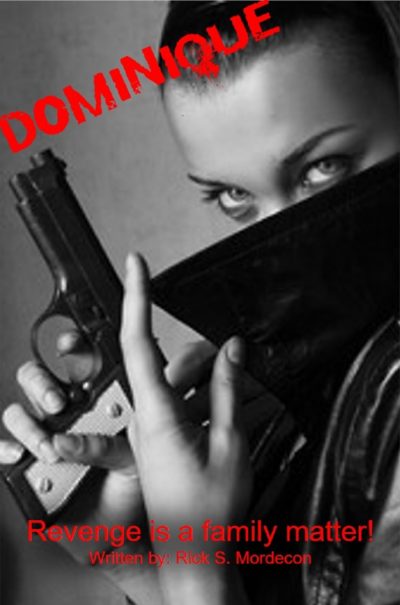 Dominique (TBA)
Dominique (TBA)
“Dominique Rashidi is on the run from deadly danger, but not from whom you’d expect. It’s her parents who are after her and they will do everything in their power to stop her. Family bonds are shattered, torn apart, crushed and trampled in the ground, as Dominique fights for her life to put her parents behind bars for the rest of theirs and gain her freedom in the process.” Don’t know any more about anyone involved, but I am digging the still (right)
Everything Everywhere All at Once (March 25)
Michelle Yeoh is an undoubted, first ballot Action Heroine Hall of Famer, and I’ll watching anything with her in it. This has not one, but multiple Michelle Yeohs, “swept up in an insane adventure, where she alone can save the world by exploring other universes connecting with the lives she could have led.” The trailer does, indeed, look rather bonkers, but it does seem that Yeoh, who turns sixty next year, is still capable of kicking ass. I’m optimistic this will be fun.
Interceptor (TBA)
“When 16 nuclear missiles are launched at the US, and a violent attack simultaneously threatens her remote missile interceptor station, one Army lieutenant must utilize her tactical training and military expertise to save humanity.”Star Elsa Pataky is best known as part of the Fast & Furious franchise, but here we know her as a cartel mermaid (!) in Tidelands. This Netflix production is Australian-set and directed by thriller writer Matthew Reilly, who calls his heroine “a strong, independent and determined woman who, in the face of overwhelming odds, just refuses to give up.”
The Mother (TBA)
“While fleeing from dangerous assailants, an assassin comes out of hiding to protect her daughter she left earlier in life.” That synopsis seems not unlike a couple of other assassin-mother films we saw this year, doesn’t it? I’m guessing that Jennifer Lopez is the title character. Director Niki Caro gave us the live-action Mulan, and this looks also to be skipping theatres, since Wikipedia says Netflix are the distributors.
Prey (Summer)
“The origin story of the Predator in the world of the Comanche Nation 300 years ago. Naru, a skilled female warrior, fights to protect her tribe against one of the first highly-evolved Predators to land on Earth” The Predator franchise has kinda been a dead-horse for me of late, largely in decline since Predator 2, but this might have some potential. Director Dan Trachtenberg did 10 Cloverfield Lane, so hard to be sure what he’ll bring to the fifth-ish installment in the series. In the US, this is supposed to be going straight to Hulu.
 The Princess (TBA)
The Princess (TBA)
Normally, Disney movies would not merit coverage here, but the still (left) piqued my interest, and the studio described it as “John Wick meets Sleeping Beauty”. Okay, I’m interested. Also: it’s directed by Le-Van Kiet, a Vietnamese director who gave the site the somewhat decent Furie in 2019, so is not a stranger to the genre. I’m still doubtful it will prove capable of living up to the description, but I’ll still be checking it out on Hulu.
Scorched Earth (TBA)
“After the apocalypse, all water is radioactive and deadly to drink. In this dystopian world, Gylian goes to extreme lengths to make sure her daughter gets the medication she needs to survive.” Seems to be a low-budget British production, so I feel warm towards it. The script is here.
The Street Avenger (TBA)
“When a young girl being raised by a single father loses him to gang violence she turns to law enforcement but they are no help. She tries to take the law into her own hands and finds out being a vigilante is nothing like she reads about in the comics. Rosie (played by Mischa Renee) quickly finds herself caught in a war between two rival gangs while trying to stay two steps ahead of the police.” Also has Danny Trejo playing a character called Muerte. Okay, I’m in – though I have reasons to suspect this one may not show up. Prove me wrong, street avenger…
Trigger Warning (TBA)
“A traumatized veteran who inherits her grandfather’s bar and faces a moral dilemma after learning the truth behind his untimely death.” This stars Jessica Alba and has been around for a while, first being announced in May 2020. For whatever reason, filming didn’t start until fall this year. It’s another Netflix movie.
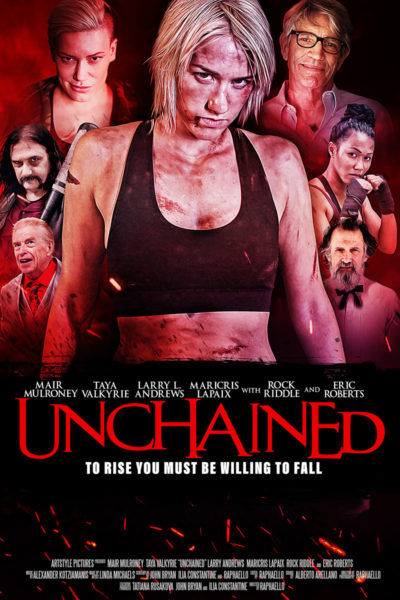 This likely suffered, having been watched the day after Boyka: Unleashed which, while not an action heroine film by any stretch of the imagination, is a near-perfect demonstration of how brutal, no-holds barred fights should be filmed. I can only guess that “Raphaello” never saw Boyka: Unleashed. And since he also co-wrote, co-produced, shot and edited this thing, pretty much all the blame for its shortcomings has to be laid at his feet. I say this, since the performances, if hardly Oscar-winning, are likely the least of the film’s worries. Even if Eric Roberts may have literally phoned, or these days, Zoomed in his role, straight from his living-room couch, as the story-telling father of the heroine.
This likely suffered, having been watched the day after Boyka: Unleashed which, while not an action heroine film by any stretch of the imagination, is a near-perfect demonstration of how brutal, no-holds barred fights should be filmed. I can only guess that “Raphaello” never saw Boyka: Unleashed. And since he also co-wrote, co-produced, shot and edited this thing, pretty much all the blame for its shortcomings has to be laid at his feet. I say this, since the performances, if hardly Oscar-winning, are likely the least of the film’s worries. Even if Eric Roberts may have literally phoned, or these days, Zoomed in his role, straight from his living-room couch, as the story-telling father of the heroine.




 Bea is living a quiet life, far out in the Wyoming countryside, with her husband Justin and young son, Bear. However, this isolation is an entirely deliberate choice in order to escape from her past. For in her previous life, she was Phoenix Romano, an enforcer and hit-woman for her mob boss father. After deciding she’d had enough of that life, she liberated several millions of his money, and vanished, hoping never to be found again. Naturally, things don’t quite work out like that. Justin and Bear are killed in a car crash, but Phoenix has reason to suspect it wasn’t an accident, and that instead her past life is catching up with her. But why did whoever was responsible for that go after her family, and leave her alive?
Bea is living a quiet life, far out in the Wyoming countryside, with her husband Justin and young son, Bear. However, this isolation is an entirely deliberate choice in order to escape from her past. For in her previous life, she was Phoenix Romano, an enforcer and hit-woman for her mob boss father. After deciding she’d had enough of that life, she liberated several millions of his money, and vanished, hoping never to be found again. Naturally, things don’t quite work out like that. Justin and Bear are killed in a car crash, but Phoenix has reason to suspect it wasn’t an accident, and that instead her past life is catching up with her. But why did whoever was responsible for that go after her family, and leave her alive?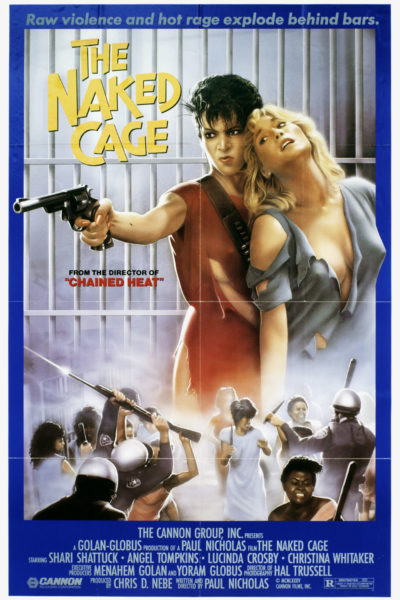
 Yes, in some way, this is probably among the closest the West has come to reproducing the DGAF attitude of Japanese entries like the
Yes, in some way, this is probably among the closest the West has come to reproducing the DGAF attitude of Japanese entries like the 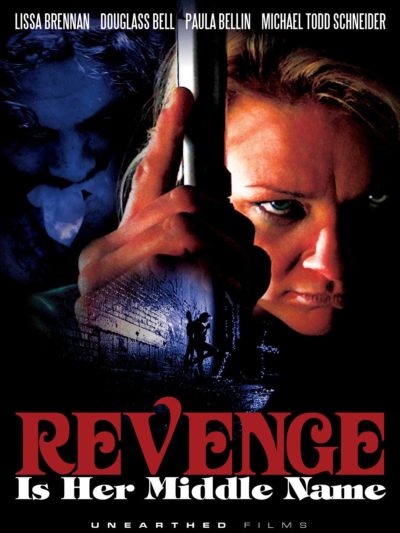
 This is one of those cases where you can see what a film is trying to do. It just isn’t very good at doing it. In this case, the central character is Gina (Killips), who works as a collector of debts for the mysterious and reclusive “Max”. This is for reasons that become clear towards the end – yet, like a lot else in the film, it doesn’t actually prove to be of much significance. Her latest job involves locating a very large sum of money which went missing from his organization. Suspicion falls on Myles (Orille), and Gina is tasked with finding out whether he was indeed responsible and if so, what he did with the loot. To this end, Gina inserts herself into Myles’s life and comes under increasing pressure from her boss, Simon (Rumley), to get results for Max. But Gina is increasingly disenchanted with her profession, and also increasingly convinced of Myles’s innocence.
This is one of those cases where you can see what a film is trying to do. It just isn’t very good at doing it. In this case, the central character is Gina (Killips), who works as a collector of debts for the mysterious and reclusive “Max”. This is for reasons that become clear towards the end – yet, like a lot else in the film, it doesn’t actually prove to be of much significance. Her latest job involves locating a very large sum of money which went missing from his organization. Suspicion falls on Myles (Orille), and Gina is tasked with finding out whether he was indeed responsible and if so, what he did with the loot. To this end, Gina inserts herself into Myles’s life and comes under increasing pressure from her boss, Simon (Rumley), to get results for Max. But Gina is increasingly disenchanted with her profession, and also increasingly convinced of Myles’s innocence. It’s probably significant that the opening credits of the film talk about the bands and the whiskey company involved. Any mention of the actual actresses taking part, is relegated to a secondary sequence, 15 minutes into the film. That seems to indicate where the priorities lie: if you told me the whole thing was made up to get freebies and as a showcase for the director’s mates, I’d have no problem believing you. Another warning sign is the way every post-production visual trick you can imagine is thrown in there; this often indicates an attempt to paper over flaws in other areas. There’s no doubt the film is certainly trying. However, Bizarro simply tries far too hard, and it’s not long before it becomes simply trying on the viewer instead.
It’s probably significant that the opening credits of the film talk about the bands and the whiskey company involved. Any mention of the actual actresses taking part, is relegated to a secondary sequence, 15 minutes into the film. That seems to indicate where the priorities lie: if you told me the whole thing was made up to get freebies and as a showcase for the director’s mates, I’d have no problem believing you. Another warning sign is the way every post-production visual trick you can imagine is thrown in there; this often indicates an attempt to paper over flaws in other areas. There’s no doubt the film is certainly trying. However, Bizarro simply tries far too hard, and it’s not long before it becomes simply trying on the viewer instead. Another year is in the books. I guess 2021 was better than 2020, or at least, we were more used to the COVID world. Still haven’t been to the cinema since late 2019: the tendency for films to be released on streaming services alongside, or very shortly after, their theatrical releases influenced that decision. The most recent such example was The Matrix Resurrections, which was watched from the couch. Good thing too, as it was severely underwhelming across the board. An amazing contrast to the original film, which broke so much new ground, and gave us an iconic action heroine
Another year is in the books. I guess 2021 was better than 2020, or at least, we were more used to the COVID world. Still haven’t been to the cinema since late 2019: the tendency for films to be released on streaming services alongside, or very shortly after, their theatrical releases influenced that decision. The most recent such example was The Matrix Resurrections, which was watched from the couch. Good thing too, as it was severely underwhelming across the board. An amazing contrast to the original film, which broke so much new ground, and gave us an iconic action heroine  But enough looking back to the past. I’ve scrolled through several hundred upcoming candidates of features due to be released in 2022, and these are the ones which have most potential to be covered on this site at some point next year. What stands out in particular, is how many of these are streaming rather than theatrical (or even DVD – is that still a thing?), As ever, they are in alphabetical order; the release dates given are the ones for the United States, and are subject to change – though most are TBA! It may also be that any of them don’t actually qualify here, when the full product is available for assessment. Synopsis in quotes are taken from the IMDb.
But enough looking back to the past. I’ve scrolled through several hundred upcoming candidates of features due to be released in 2022, and these are the ones which have most potential to be covered on this site at some point next year. What stands out in particular, is how many of these are streaming rather than theatrical (or even DVD – is that still a thing?), As ever, they are in alphabetical order; the release dates given are the ones for the United States, and are subject to change – though most are TBA! It may also be that any of them don’t actually qualify here, when the full product is available for assessment. Synopsis in quotes are taken from the IMDb. Dominique (TBA)
Dominique (TBA) The Princess (TBA)
The Princess (TBA) The setting is a dystopian version of London, which has become separated into two distinct halves, and classes of residents. It’s a world in which cybernetic enhancements are common. But they come at the cost of a debt – sometimes, virtual enslavement – to the powerful corporations who supply and maintain them. Frankie has resisted these, preferring to retain her humanity, and journeys into the dangerous undercity, to help those less fortunate. But on one such trip, she’s shot and left for dead. Rescued by the renegade Doctor Xenox, she wakes to find herself in a new, artificial and highly-powered body. She’s not too happy about it. Things get worse, for the doctor’s erstwhile corporate employers, Psytech, consider Frankie v2.0 as their property, and will stop at nothing to get her under control. As a result, with the help of the Doctor, and cop Gibson, she has to fend off the assembled forces of Psytech.
The setting is a dystopian version of London, which has become separated into two distinct halves, and classes of residents. It’s a world in which cybernetic enhancements are common. But they come at the cost of a debt – sometimes, virtual enslavement – to the powerful corporations who supply and maintain them. Frankie has resisted these, preferring to retain her humanity, and journeys into the dangerous undercity, to help those less fortunate. But on one such trip, she’s shot and left for dead. Rescued by the renegade Doctor Xenox, she wakes to find herself in a new, artificial and highly-powered body. She’s not too happy about it. Things get worse, for the doctor’s erstwhile corporate employers, Psytech, consider Frankie v2.0 as their property, and will stop at nothing to get her under control. As a result, with the help of the Doctor, and cop Gibson, she has to fend off the assembled forces of Psytech. No-one does low-budget hyperviolence like the Japanese. Whether it’s pseudo-snuff like Guinea Pig: Flower of Flesh and Blood, or more fantastical entries such as
No-one does low-budget hyperviolence like the Japanese. Whether it’s pseudo-snuff like Guinea Pig: Flower of Flesh and Blood, or more fantastical entries such as